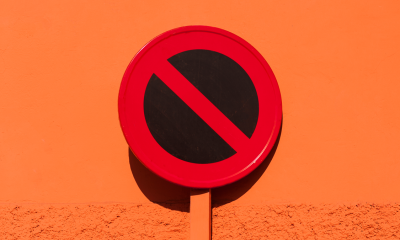Technology
Why Apple needed to cut HomePod’s price from $350 to $300


Image: lili sams / mashable
Your eyes aren’t deceiving you: Apple’s HomePod is now cheaper this morning than it was last night.
About a year after HomePod went on sale, Apple has quietly dropped the price of its Siri-powered smart speaker from $349 to $299.
It’s a substantial price cut for an Apple product — about 14 percent in the U.S. — and makes the HomePod a more attractive value if you’re already invested in the Apple ecosystem. But will it be enough to reverse the HomePod’s extremely slow start?
From its very beginning, HomePod faced an uphill battle against Amazon and Google’s smart speakers. Not only did HomePod launch years after the Amazon Echo and Google Home, but Apple’s smart speaker was also considerably more expensive.
A HomePod cost $349 compared to a $129 Google Home or $99.99 Amazon Echo. With such a high price, it was hard for many people to justify paying for a HomePod even if it does provide noticeably superior sound in its compact size. Why buy one HomePod when you could get two Google Homes or three Amazon Echos instead?
Price wasn’t the only thing that put the HomePod at a large disadvantage, either. Compared to the Alexa and Google Assistant platforms, Siri isn’t nearly as smart and its features aren’t nearly as robust.
Sure, Apple’s updated HomePod with features like stereo speaker pairing, AirPlay 2, and the ability to set multiple timers, but Siri’s capabilities still pale in comparison to the over 70,000 Alexa skills and over 4,000 Google Actions.
Cutting the cost of HomePod could lead to a rejuvenation in sales of the smart speaker and position it to compete more aggressively with similarly priced smart speakers such as the $199 Sonos One.
Though Apple doesn’t release sales units for HomePod, the smart speaker is estimated to have accounted for only six percent of the U.S. smart speaker market at the end of the fourth quarter of 2018 compared to Amazon’s 70 percent and Google’s 24 percent, according to research firm Consumer Intelligence Research Partners. Lowering HomePod’s cost could boost its market share in the short term.
That said, I don’t think a price drop alone will be enough to reverse HomePod’s slow adoption long term unless Apple makes some other changes.
If Apple’s serious about HomePod’s future, it should 1) improve Siri so that it matches or exceeds what Alexa and the Google Assistant can do (Apple’s hiring of a top ex-Google AI executive suggests big improvements to Siri might be coming) and 2) open the speaker up to third-party music services such as Spotify and Pandora instead of requiring customers use Apple Music to get full Siri voice controls.
WWDC, Apple’s annual developer conference, is two months away. If there’s any event where Apple should announce sweeping changes to breathe new life into HomePod, WWDC will be it.

-

 Business7 days ago
Business7 days agoFormer top SpaceX exec Tom Ochinero sets up new VC firm, filings reveal
-

 Business6 days ago
Business6 days agoConsumer Financial Protection Bureau fines BloomTech for false claims
-

 Business4 days ago
Business4 days agoLangdock raises $3M with General Catalyst to help businesses avoid vendor lock-in with LLMs
-

 Entertainment4 days ago
Entertainment4 days agoWhat Robert Durst did: Everything to know ahead of ‘The Jinx: Part 2’
-

 Business6 days ago
Business6 days agoKlarna credit card launches in the US as Swedish fintech grows its market presence
-

 Entertainment3 days ago
Entertainment3 days agoThis nova is on the verge of exploding. You could see it any day now.
-

 Entertainment7 days ago
Entertainment7 days agoHow to watch ‘The Sympathizer’: Release date and streaming deals
-

 Entertainment6 days ago
Entertainment6 days agoHow to set boundaries in the early stages of dating






















